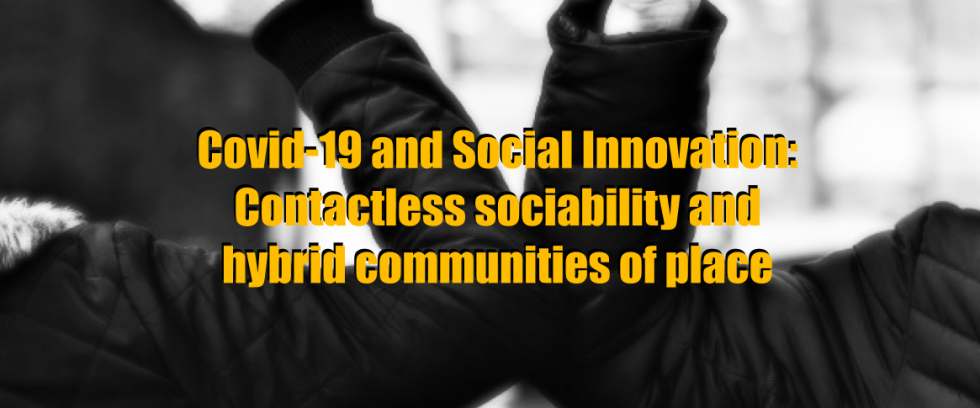Covid-19 and Social Innovation: Contactless sociability and hybrid communities of place

In this article, Ezio Manzini, Honorary Professor of the Milan Polytechnic and President of the DESIS Network, asks what the world will be like after the Covid-19 crisis, how it will be different, and where will the change go.
While some optimists think there will be a lasting positive change in our well-being model, with the quality of relationships and common goods at its centre, Manzini argues that things are not necessary going in that direction.
“Individualization, virtualization and widespread social control are trends that have been in
place for some time and that, despite saying that nothing will be as before, the Covid-19 crisis
will strengthen. The result is that, if nothing else happens, in the name of this convenience
(that is, in the name of the search for a frictionless and effortless daily life), society will
continue its march towards self-dissolution in a myriad of individuals, so connected how
lonely. A society of more isolated people (less relationships between them, that is, more
individualization), more detached from the places where they live (less relationships between
people and places, that is, more virtualization), more willing to be observable and observed,
in the name of security (less privacy, i.e. more control). Ultimately, a society, as a whole, less
cohesive, less capable of self-organization and less free.”
A confrontation is required, he says, and that can only be achieved through a new type of social innovation, which he calls “hybrid communities of place”:
That is, communities capable of living in both the physical and the digital space. Communities which, precisely by virtue of their hybrid and localized nature, can confer cohesion and resilience to the wider social system of which they are a part. In fact, it is proven that these hybrid local communities are the ones that best know how to cope with catastrophic events. And that they can do it precisely because, operating daily for mutual care and for the care of the environment in which they live, when such events take place, they have the ability and the knowledge to act and to self-organize.
We therefore have to make a decision, he says, “to cultivate in the digital space only (or at least mainly) relationships in-between neighbours. That is, in between a well-defined and localized group of interlocutors.”



